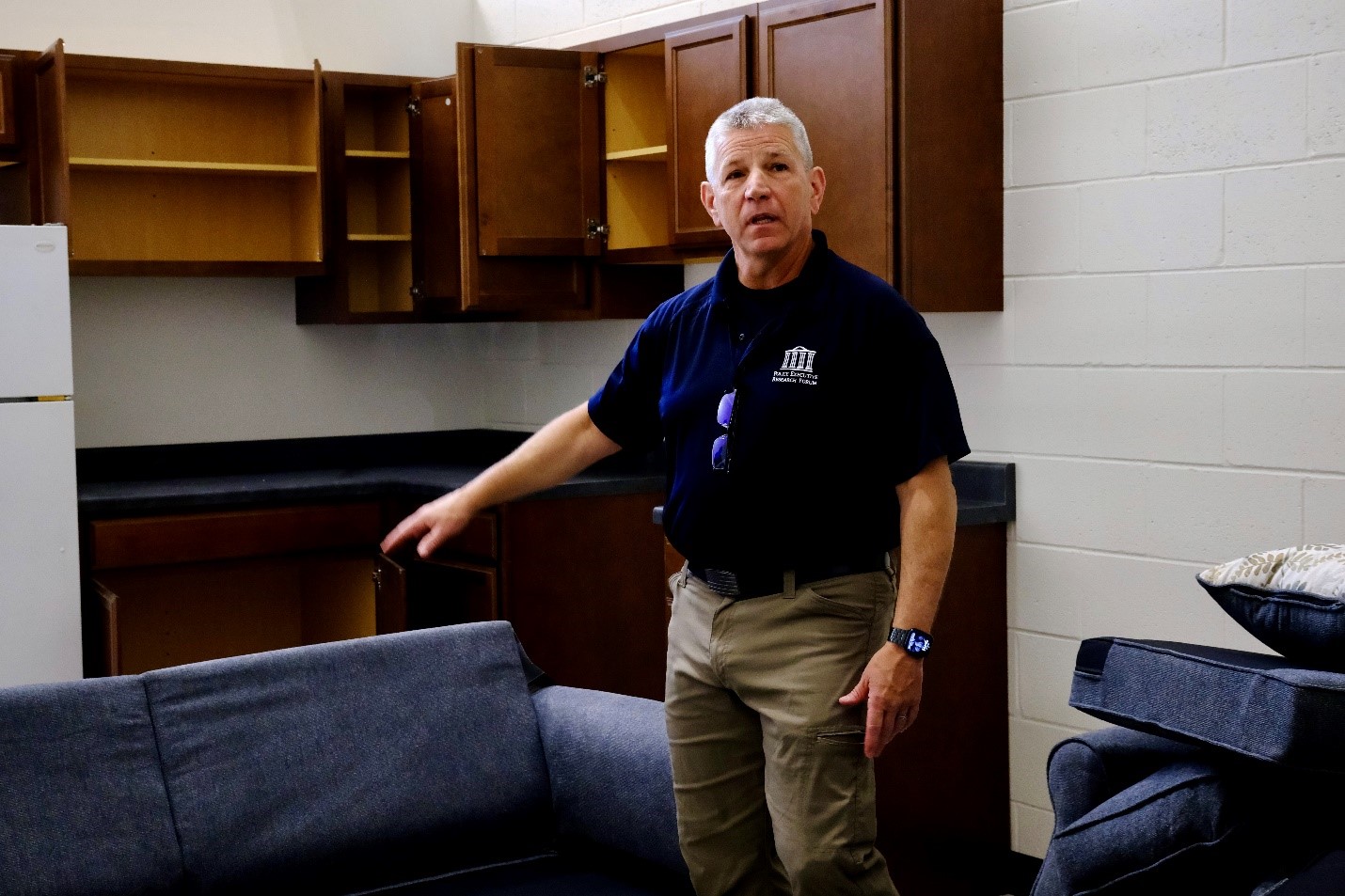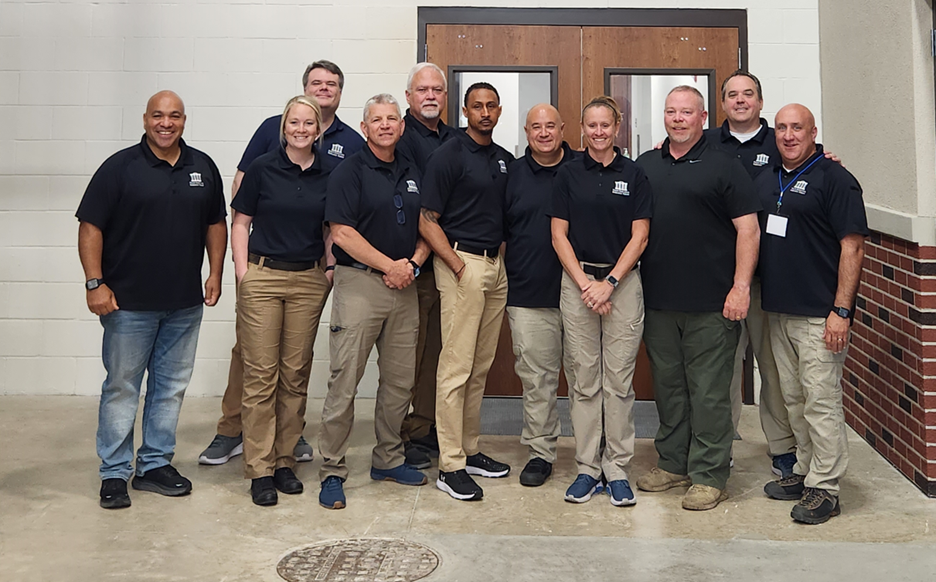|
May 25, 2024 Restraint fatalities, a high-profile incident in Louisville, and PERF mourns the loss of one of its star instructors
PERF members, Today I want to discuss a few topics, including restraint fatalities, overdose deaths, and an arrest in Louisville that received a lot of attention. AP series on restraint fatalities Over the past three months, the Associated Press has published a series of ten articles on fatalities that have occurred as police attempt to restrain individuals. This was their key finding: “Over a decade, more than 1,000 people died after police subdued them through means not intended to be lethal, an investigation led by The Associated Press found. In hundreds of cases, officers weren’t taught or didn’t follow best safety practices for physical force and weapons, creating a recipe for death.” In the latest articles in this series, the AP analyzes those hundreds of cases in which police didn’t follow use-of-force guidelines and looks at what can occur when individuals are handcuffed facedown. These are among the most challenging and risky situations for police. Many cases involve individuals who are in some type of medical distress that may be drug-induced or due to a mental health crisis. They may not comply with (or understand) instructions from police officers. If these situations go poorly, the individual could die, and the officers or EMTs could be charged with homicide or other crimes. Are police properly trained to resolve these incidents? The person in crisis clearly needs help, but normal tactics and de-escalation strategies may not always work. I don’t think this problem has received the attention it deserves, and the public’s expectations of police in these situations have changed. Working with subject matter experts from medicine and policing, PERF plans to examine this issue in the coming months and publish recommendations for the field. More on opioid overdose deaths As I wrote last week, there was recent good news about drug overdose deaths declining in the United States last year. In Tuesday’s “This Morning” newsletter from the New York Times, journalist German Lopez explored the causes of that decrease: “There are two main causes. First, drug epidemics tend to follow a natural course in which the drugs enter a market, spread and then fade away, at least for some time. The opioid epidemic appears to have entered that final phase. Second, policymakers have increased access to both Narcan, a medication that reverses opioid overdoses, and addiction treatment. These changes have saved lives.” Lopez goes into greater detail on both causes. Let’s hope he’s right, and overdose deaths continue to decline. There were a couple other pertinent articles about the opioid crisis published this week. The Washington Post ran an article about youth overdose deaths in both the Washington, D.C. region and nationwide. The U.S. youth overdose death rate decreased in 2023, but was still more than double the 2019 rate. And the Baltimore Banner and New York Times co-published a detailed article on the more than 6,000 drug overdose deaths in Baltimore over the past six years. A high-profile arrest in Louisville As everyone has probably heard, last week a Louisville Metro police officer arrested the world’s top-ranked golfer, Scottie Scheffler, outside the PGA Championship at the Valhalla Golf Club. WHAS Louisville explained: “LMPD Det. Bryan Gillis arrested Scheffler, and an arrest citation claimed the two-time Masters champion disobeyed orders to stop his vehicle, resulting in Gillis being dragged to the ground. Scheffler was attempting to enter Valhalla following an unrelated fatal crash, which led to dozens of officers arriving on the scene to direct traffic.” Det. Gillis did not activate his body-worn camera before the incident, which LMPD Chief Jacquelyn Gwinn-Villaroel said was a policy violation and will be addressed with corrective action. LMPD released footage from a dashboard camera and a nearby surveillance camera on Thursday. I commend LMPD for releasing available footage, but I think this case demonstrates how much body-worn cameras have changed policing. When officers are outfitted with cameras, the public expects incidents to be recorded and footage to be released. When incidents are not recorded, both the officer and the department end up in a defensive position. 30x30 Initiative webinar featuring PERF’s executive search team Earlier this month, PERF executive search consultants Charlotte Lansinger, Rebecca Neuburger, and Antoinette Tull presented on a 30x30 Initiative webinar about advancing women into police leadership ranks. They discussed two PERF publications – Command Performance: A Career Guide for Police Executives and Women in Police Leadership: 10 Action Items for Advancing Women and Strengthening Policing – and shared tips about resume writing, job interviews, and career advancement. The webinar is available on the 30x30 Initiative’s Youtube page. Remembering a wonderful teacher and person This week we received the sad news that Dan Warren, a retired lieutenant with the Riverside, California Police Department and one of PERF’s regular ICAT instructors, suddenly passed away. Dan served on SEAL Team 5 in the U.S. Navy, and that experience gave him considerable credibility with those he taught ICAT. He was one of our first instructors, joining the team in 2018. In addition to teaching ICAT, Dan worked on our “suicide by cop” protocol and our Critical Response Toolkit for First-Line Supervisors. He was always a pleasure to work with, and was beloved by his fellow ICAT instructors. Dan Alioto, who leads PERF’s ICAT training, told me, “Dan loved this country and his family, and he believed that what he was doing was making a difference. He was simply one of the best people I’ve ever known.” Sean Patterson, a former NYPD Emergency Service Unit commander who is now the police chief at the University of Tennessee-Knoxville, taught ICAT with Dan, and they bonded over their shared service in the Navy. “I learned Dan was as tough as nails, with a soft spot in his heart,” Sean told me. “He always saw the common good in people. He trained at the highest level in the military and as a police officer, and he always looked for ways to deconflict, defuse, or resolve a situation in a safer way.” Dan was married to his wife Kellie for 31 years and had three sons, Patrick, Nico, and Vince. I offer my deepest condolences to all his family and friends.
Dan teaching ICAT
Dan joined by his fellow ICAT instructors
Dan enjoying a cigar Have a relaxing Memorial Day weekend! Best, Chuck |



